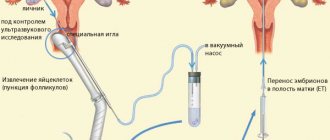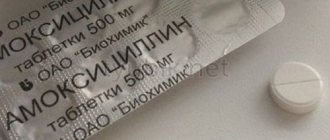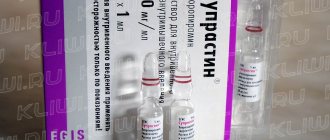Composition of the drug
The active ingredient of the drug Phlebodia 600 is Diosmin.
With varicose veins, dilation of the veins is observed, which in the initial stages is reversible. Diosmin is able to increase the tone of the vascular wall, which leads to their narrowing. The drug has a stimulating effect on capillaries and restores their microdamage. Another symptom of varicose veins is edema - the accumulation of fluid in the intercellular space. Diosmin reduces the permeability of the vascular wall, due to which blood plasma does not sweat from the capillaries. Due to this effect, the drug reduces the amount of edema.
Diosmin improves microcirculation in small vessels of the bloodstream, which helps eliminate stagnation. The drug increases the intensity of lymph circulation, due to this there is a decrease in swelling and the resumption of drainage function. The drug helps to increase vascular resistance, which also leads to the elimination of blood stagnation in the veins.
Attention! Phlebodia during pregnancy can be used to treat venous pathologies only after the 1st trimester as prescribed by the attending physician.
The active substance Phlebodia prevents the adhesion of formed elements, thereby increasing the outflow of blood to the heart. Diosmin improves the movement of oxygen from the vessel to the cells of the organs - eliminates tissue ischemia (oxygen starvation). The medication also relieves inflammation, one of the links in the pathogenesis of varicose veins.
Phlebodia 600 acts on the entire venous system, therefore eliminating congestion in any part of the bloodstream. Most often, this drug is indicated for the treatment of vascular pathologies of the lower extremities. Diosmin also has a therapeutic effect on hemorrhoidal and placental veins.
The drug begins to exert its therapeutic effect 30-50 minutes after administration. Its maximum amount in the blood is observed after 6 hours. The medication is deposited in the walls of the veins, where it has a therapeutic effect; the highest concentration of the substance in them is recorded 10 hours after administration. Phlebodia leaves the body within 4 days. Most of the drug is excreted in the urine, passing through the kidneys, and a smaller part is excreted in feces through the gastrointestinal tract.
Directions for use and contraindications
This tablet medication must be taken orally with meals. It is taken according to a regimen drawn up by the attending physician. It also determines the duration of the course of treatment. If the dosage was selected according to the stage of the disease, then the patient’s well-being is normalized quickly, and the symptoms are eliminated.
If hemorrhoids are acute, the dosage is increased. The course usually lasts 7 days. As soon as the condition improves, the number of tablets is reduced.
There are practically no contraindications for this medication. The exceptions are:
- individual sensitivity to the components of the drug;
- children under 18;
- lactation period.
In other cases, tablets may be indicated and their action will be effective.
As a rule, Phlebodia has excellent tolerability. Practice shows that there have been some cases of the body’s reverse reaction to taking them, including:
- dizziness and headache;
- vomiting, heaviness in the abdomen, pain;
- skin allergies.
These side effects disappear immediately after treatment ends or the drug is discontinued.
Release form and expiration date
Phlebodia 600 is available in one dosage form - tablets. They have a round, biconvex shape and contain a pinkish shell on top. One tablet contains 600 milligrams of the active substance Diosmin. In addition to this chemical compound, the preparation contains talc, silicon dioxide, and stearic acid.
The drug should be stored at a temperature of no more than 30 degrees Celsius and should not be exposed to direct sunlight. The shelf life of Phlebodia 600 is 36 months; after its expiration, taking the medication is strictly prohibited. The drug is sold in pharmacies without a prescription form.
Description of the dosage form
Biconvex round tablets, coated with a pink film (protective film type Sepifilm 002). In cross-section they appear as a gray-brown core with a surrounding light mantle. Packaged in 15 pieces per blister, cardboard box, one or two strip packaging.
Round, biconvex, pink film-coated tablets.
Film-coated tablets. 15 tablets each in PVC/aluminum blister. 1 or 2 bl. in a cardboard box.
Indications for use
Doctors prescribe Phlebodia 600 during pregnancy if these symptoms and diseases are present:
- systemic venous insufficiency;
- dilation of hemorrhoidal veins (hemorrhoids);
- Varicose veins;
- as part of complex therapy for intrauterine growth retardation and fetal development (the drug is useful for the blood vessels of the placenta);
- as part of complex therapy for microcirculation pathologies;
- subjective sensations of heaviness, pain, cramps in the lower extremities;
- fetoplacental insufficiency.
Phlebodia 600 can also be prescribed when planning pregnancy to prevent varicose veins of the legs and hemorrhoids. The drug is indicated for use in women who have a predisposition to these diseases - family history, excess weight, sedentary lifestyle, etc.
Features of taking medication during pregnancy
Clinical studies of the drug have shown that when pregnant women take Phlebodia, blood flow in the uterus and placenta, as well as the development of the child (according to weight and height indicators), improves. In addition, this medicine helps to improve the general well-being of patients. Meanwhile, if the fetus was slightly behind in development in terms of body weight, then taking Phlebodia by the mother made it possible to bring this indicator to normal. If a pregnant woman has fetoplacental insufficiency, the drug may be indicated to eliminate this process. As a complex therapy, this medication is used for the effective treatment of hemorrhoidal processes and varicose veins of the legs in pregnant women.
Thus, the drug Phlebodia has a powerful anti-inflammatory and vascular strengthening effect, which relieves pain from hemorrhoids and varicose veins, significantly improving the condition of patients. It has virtually no side effects or negative reactions.
A competent treatment regimen and dosage of Phlebodia will allow you to quickly cope with the disease and carry out proper and effective prevention.
Effect of the drug on the fetus
During experiments on laboratory mice, it was established that Phlebodia 600 does not cause congenital defects or developmental anomalies in animal fetuses. Currently, the drug is not classified by the FDA (a classification based on the safety of the drug for the unborn child) due to insufficient information.
According to the instructions, the drug is prohibited for use in the 1st trimester of pregnancy. This is due to the fact that in the early stages of gestation the placenta does not perform a protective function, so the drug enters the bloodstream of the fetus. Until the 12th week of pregnancy, the formation of tissues and organs of the unborn child is observed, so external irritants can provoke severe congenital anomalies.
The use of Phlebodia for pregnant women at a later stage is possible if there are significant indications for this. Treatment must be prescribed by a qualified physician. The drug can be used until the end of the pregnancy period, since it does not have any effect on the tone of the uterus and the opening of the cervix.
Pharmacokinetics
The drug has a phlebotonic effect (reduces the distensibility of veins, increases the tone of the veins - a dose-dependent effect; reduces venous stagnation), improves lymphatic drainage (increases the tone and frequency of contraction of lymphatic capillaries, increases their functional density, reduces lymphatic pressure), improves microcirculation (increases the resistance of capillaries - dose-dependent effect;
reduces their permeability), reduces the adhesion of leukocytes to the venous wall and their migration into paravenous tissues, improves oxygen diffusion and perfusion in the skin tissue, and has an anti-inflammatory effect. Strengthens the vasoconstrictor effect of adrenaline, norepinephrine, blocks the production of free radicals, the synthesis of PG and thromboxane.
Rapidly absorbed from the gastrointestinal tract, detected in plasma 2 hours after administration. Cmax in blood plasma is achieved 5 hours after administration. It is evenly distributed and accumulates in all layers of the wall of the vena cava and saphenous veins of the lower extremities, and to a lesser extent in the kidneys, liver, lungs and other tissues.
Phlebodia tablets are quickly absorbed from the gastrointestinal tract (taken orally). It is detected in plasma after two hours, and the maximum concentration of the drug in the blood is observed five hours after using the drug.
Diosmin is uniformly deposited both in the vena cava and in the subvascular bed of the lower extremities or in other tissues. The active components are excreted mainly through the kidneys (about 80 percent of a single dosage), to a lesser extent with feces (about 11 percent) and bile (2.4 percent).
Instructions for use
During an exacerbation of hemorrhoids, it is recommended to take 1200-1800 mg of the active substance twice or thrice a day (2-3 tablets) with meals. The drug should be taken with a glass of clean water without gas. The course of treatment is a week. When dilating hemorrhoidal veins, the drug has only a symptomatic effect; it does not eliminate the cause of the disease. Therefore, if hemorrhoids develop, you should consult a doctor to prescribe adequate treatment.
For other diseases, the dosage of the drug is selected by the attending physician; it depends on the patient’s condition and concomitant pathologies. Typically, experts prescribe one tablet of Phlebodia 600 in the morning before breakfast. The medicine should be taken with a glass of clean still water. The duration of therapy depends on many factors and is monitored by a doctor. The average course of treatment with the drug is 60 days, which can be repeated if necessary.
When treating Phlebodia 600, the patient must follow certain rules. He should not spend a lot of time in the open sun or lead a sedentary lifestyle. It is recommended to reduce weight, if it exceeds the norm (this rule does not apply to pregnant women), and to walk more. To enhance the effect of treatment, compression stockings are indicated.
Instructions and dosage
According to the instructions for use, Phlebodia should be taken orally. The regimen is selected individually, however, as a rule, treatment occurs using one of three methods:
- Treatment of varicose veins or chronic venous insufficiency, circulatory disorders of the placenta: 1 tablet per day 15 minutes before meals, for 2 months for the treatment of the initial stage of the pathology, for severe forms - 3-4 months. If there are trophic changes in the skin, treatment is extended to six months. Repeated courses are possible after 2-3 months.
- Exacerbation of hemorrhoids: 2-3 tablets per day with meals for a week. After the acute process has stopped, the course can be extended to 2-3 months, but the dosage is changed to 1 tablet per day.
- Chronic lymphovenous insufficiency: 1 tablet 1 time per day 15 minutes before meals, treatment stops 2-3 weeks before birth.
Side effects
Usually the drug is well tolerated by patients and causes virtually no adverse reactions. In rare cases, Phlebodia contributes to dysfunction of the digestive system - nausea, diarrhea, accumulation of gases in the intestines, heartburn and other dyspeptic symptoms develop while taking it.
Also, the drug can cause disorders of the central nervous system - headaches, impaired attention, memory loss. Very rarely, the drug contributes to the occurrence of allergic reactions such as dermatitis, urticaria, Quincke's edema.
special instructions
When treating an acute hemorrhoidal crisis, you should be observed by a proctologist and conduct regular additional studies, since the drug may not exert its pharmaceutical effect immediately, which is fraught with deterioration of the condition and progression of the pathological process up to the loss of inflamed venous cavities from the rectum. In the absence of a rapid effect, therapy is supplemented with specialized drugs with hemodynamic and tonic effects.
Treatment of an acute attack of hemorrhoids is carried out in combination with other drugs; in the absence of a rapid clinical effect, it is necessary to conduct an additional examination and adjust the therapy.
Impact on the ability to drive vehicles. There is no data on the negative effect of the drug on the ability to drive vehicles and other mechanisms.
Analogues of Phlebodia 600
Complete analogues of Phlebodia 600 in terms of the active substance are the drugs Vasoket, Diosmin, Venolen and Phlebofa.
They have a similar therapeutic effect, eliminate congestion in the veins, relieve swelling, and improve microcirculation. The listed drugs are indicated for the treatment of varicose veins of the lower extremities, hemorrhoids, and pathologies of the fetal blood supply starting from the 2nd trimester of pregnancy as prescribed by a specialist.
Venarus is a combination drug containing Diosmin (the active substance of Phlebodia) and Hesperidin. The drug has similar indications for use, tones and protects the venous system, and is allowed from the 2nd trimester of pregnancy according to indications.
Detralex is a drug containing Diosmin and flavonoids. The drug is indicated for the treatment of pathologies of venous vessels and is effective in relieving swelling and pain in the lower extremities. Taking Detralex is possible after consultation with a doctor from the 13th week of pregnancy.
Actovegin contains a substance of the same name and has an angioprotective effect. The drug is effective for trophic ulcers and congestion in the venous vessels. During pregnancy, it can be used at any stage if there are serious indications.
Curantil contains an active substance called Dipyridamole. The drug is prescribed to prevent thrombosis in the veins of the lower extremities and improve blood circulation in the capillaries. The drug can be used if the benefit to the expectant mother outweighs the potential risk to the fetus.
Analogues and cost
Angioprotectors are a large group of drugs that have a strengthening effect on the vascular wall. If it is impossible to use Phlebodia, the doctor prescribes its analogues to the pregnant woman. The range of their applications is largely similar, the difference in cost is due to different methods of processing the active substance - diosmin.
The most effective among modern analogues of Phlebodia:
- Vasocket – cost from 695 rubles for 30 tablets.
- Diosmin – from 411 rubles for 30 tablets.
- Detralex - the price depends on the dosage and package size, ranging from 627 rubles for 30 ballet flats 500 mg.
- Phlebofa - from 639 rubles for 30 tablets.
Despite the fact that the safety of Phlebodia has been proven, and it is approved for use starting from the 2nd trimester, self-treatment is excluded. The possibility of using the drug and the choice of dosage, as well as the regimen of use and duration of the course, should be determined by a specialist.
Author: Ksenia Khazieva, doctor, especially for xVarikoz.ru
When is Phlebof prescribed?
The medication helps thin the blood, so it will be useful for venous insufficiency. The medicine prevents thrombosis and strengthens blood vessels. As part of complex treatment, Phlebofu is used to treat all forms of hemorrhoids. The drug is prescribed to adult patients, except for early pregnancy and lactation.
Phlebopha is a venotonic, a plant flavonoid. The medication is effective for:
- Varicose veins of various stages;
- Blood microcirculation disorders;
- Acute and chronic forms of hemorrhoids.
The drug is suitable for monotherapy; it is also used in combination regimens. Flebof is also prescribed by surgeons after surgery to prevent relapses. The range of use of the product is expanded by gastrointestinal diseases such as peptic ulcers or gastritis. Single use is convenient for elderly patients with poor memory and busy people. The specificity of vascular diseases requires treatment with venotonics and phlebotonics only under the supervision of a physician.











